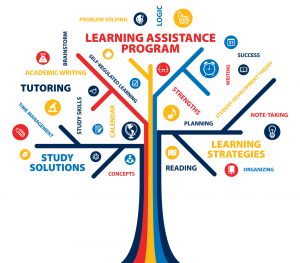Time Management for Students: 6 Strategies to Maximize Your Success
by Adena B.
We hope you are all returning back from a restorative holiday break, and feeling energized to take on the upcoming term. We know that the start of the term can feel rather overwhelming at times, and yet, it is an opportunity to put change into motion.
As a Learning Strategist, I am often asked, “What are the most effective and productive ways to plan and organize my study sessions?” You can get ahead of all those looming deadlines, and find the right balance of priorities and commitments. The answer starts with identifying the time management tools and strategies that work for YOU.
Check out these strategies to get your started:
- Calendars that break down the month, week, and day will help you to plan for specific tasks, and help you to get the BIG PICTURE throughout the term. You may need a dual system to account for daily tasks, and to keep track of those upcoming major deadlines. TIP: Use Google Calendar to set on alarm for Sunday afternoons to plan for the week ahead.
- Break it down. Don’t let your major assignments sneak up on you, and let overwhelm get the best of you. We often need A LOT more time to complete those tasks. Break down those major assignments into smaller steps, and put projected deadlines for those steps right into your calendar.
- Identify your peak times and peak environments. When do you work best? Where do you work best? Prioritize those times for difficult or challenging tasks to set yourself up for more success.
- Eliminate distractions. That’s a hard one. Be prepared with strategies to cope with internal and external distractions. You may need to download app blockers, or unplug from the internet. Use our “Dealing with Distractions” Resource to identify common distractions, and plan your coping methods.
- Set study goals every session to monitor and evaluate your progress. Be specific. For example, “Study Psychology” is less effective than “Summarize the differences between the three major theories of development from the readings, and compare with my lecture notes.” Use our “Goal Setting” Resource to learn about best practice for effective goal setting.
- Combat procrastination with a 15 minute rule. Plan to work for 15 minutes. That’s right. 15 minutes. The 15 minute rule reduces pressure, and is often enough time to get start on a task, and build momentum. No success? Commit to trying again with another task, or later in the day.
Check out the “Time Management” section under the Resources Tab for tools and templates to support your learning.

